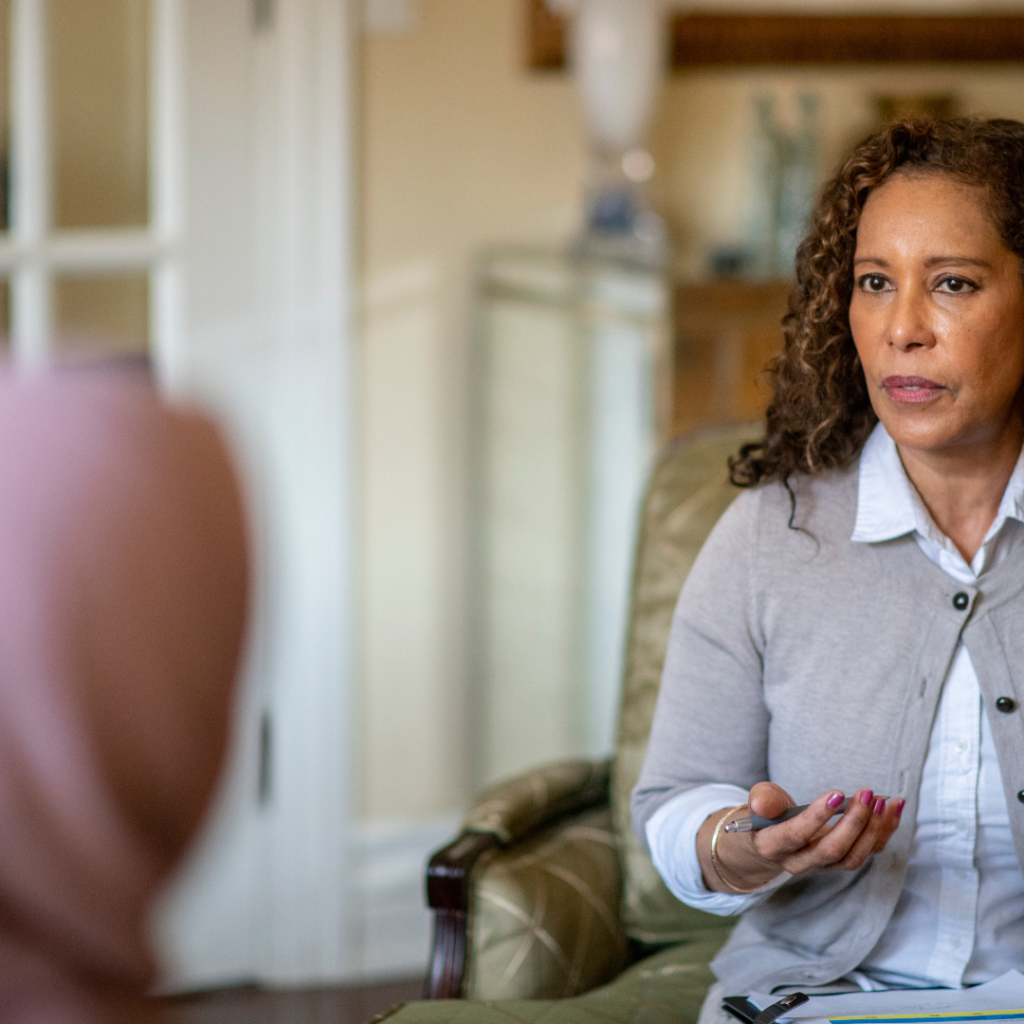Welcome to the heartbeat of Integrative Counsel, our blog where tranquility meets transformation. This is your sanctuary for insights and wisdom on nurturing a harmonious connection between mind, body, and spirit.
21 Solutions For Finals Week Stress

Feeling overwhelmed by finals week? Approaching the finish line of each semester can be a test of our endurance, lifestyle, and emotional wellbeing. Any mistakes we’ve made are now readily apparent, and putting yourself in a state of hypervigilant distress about it comes all too naturally. But if we are highly upset, highly burnt out, or highly afraid, how can we expect to do well at school? Is it possible to recover? What can we actually do about stress during finals week?
How Do You Prevent Burnout In Finals Week?

When we’re exhausted, we can’t expect to do our best work. If we’ve been burning the candle at both ends to meet our obligations all semester, of course we’re going to feel overwhelmed when we get to the end. School is something that requires a lot of hard work, so how do we balance our own energy while also mounting such a difficult task? How can we shine without burning out? (If you’ve gotten to finals week and it’s too late to be pro-active, keep reading till the end of the article!)
- Preparation. Focusing can be hard, but if we incorporate studying and preparation into our everyday routine, we can divide our work into shorter periods of effort so that we’re not overwhelmed when finals week comes. Preparation means making learning into a habit, but there’s more we can do to avoid burnout than just being prepared.
- Exercise. Our minds and bodies are deeply connected. That means if we take care of our body, we’re also taking care of our mind. Putting your body through a physical workout can help you manage the highs and lows of going to school because when you work out, you release endorphins. Yoga is a practice that allows you to connect movement with the breath and helps you learn to balance strength and rest. The Body Electric Yoga Studio in St Petersburg, FL has amazing yoga classes where you can practice listening to your body-informed wisdom and find the balance between healthy hard work and rest.
- Leaving Room For Rest. If we don’t make the time in our schedule to rest, our quality of life goes down in every respect. That means providing adequate time to sleep, but also adequate time spent on your interests and hobbies with your mind at rest. Laying out in the sun and being present with nature can be a form of relaxation that allows your brain to shift into a relaxed state. It might not feel like you “deserve” it, but rest is absolutely necessary if you want to be successful at school.
- Making Time For Creativity. Our brain does its best work when we’re using all of it. When we make time to be creative, we give our brain permission to process the subconscious thoughts and feelings that we otherwise couldn’t bring to the surface. If we make the time for creativity, we can go into finals week more balanced and well-regulated, which allows us to access our intelligence.
“There is more to life than increasing its speed.” Mahatma Gandhi
What To Do When You’re Anxious About Exams

Anxiety can be a good thing in short doses. The anxiety that reminds us to study is naturally far preferable to the malingering anxiety that one day we will die. We need to know when to listen to our anxiety, and when to soothe it. If we do not check in with our anxiety, we will feel anxious about exams whether we’re prepared or not.
- Self-Soothe So You Can Think Straight. We need to recognize when we’re dysregulated so we can give ourselves the attention we need to heal. If we know how to self-soothe, we can manage even the most intense feelings of anxiety.
- Study, But Don’t Just Study. It’s good advice to study! Working hard pays off both literally and psychologically. But you need to work hard in a way that’s sustainable. That means no cramming, incorporating study into your daily routine, and scheduling plenty of recreation and rest.
- Check In With Your Feelings Through Journaling. It can be hard to take a step back and really listen to what we’re saying to ourselves. That’s why it can be so powerful to write it down. By journaling, we can put up a magnifying glass to the way we think and (potentially) do it differently.
“What are some examples of a somatic tool that we could use if we are feeling a lot of excess energy in the body, are super anxious and getting upset or having a really difficult conversation? We often go into tunnel vision because that is our body’s sympathetic fight or flight response for if there was an actual threat that we needed to fight or fly from. A very easy tool to use is to open your peripheral vision by simply picturing our sight expanding. With this, can get a deeper diaphragmatic breath. We can sink back into our body.” Lauren Mishkin
How To Cope With Exam Stress

So we did our preparation, we’re doing the work on ourselves, and we’re setting aside time to take care of our emotional well-being. What if we still feel anxious? What’s something actionable that you can do right now to help with exam stress?
- Go for a walk.
- Eat some food (author’s recommendation: high protein snacks like cheese, nuts, and yogurt).
- Take a shower.
- Get some extra sleep.
- Convene with your peers and study together.
- Do a guided meditation (like this one.)
- Spend quality time with a loved one.
- Do household chores for fifteen minutes.
What To Do When You Weren’t Prepared For Finals Week

What if you haven’t been doing any of this stuff? What if you’ve made it to the end of the semester, and you’re freaking out because it feels like you’ve messed it all up? You can’t rewind the clock, but you can still make the most of the time you have left. What can we still do when we’ve gotten to the last minute?
- Don’t Give Up. Your first priority is to keep the fire of hope alive. Whatever setbacks you encounter, do whatever it takes to keep getting back up. Try to zoom out and see the bigger picture. What would it look like if you picked up the pieces and kept trying? You will not be defeated so long as you keep trying.
- Do What You Can. Even if you don’t have time to do everything, you still have time to do something! Make a detailed assessment of what’s left to do in your class (assignments, study periods, presentations, and exams). Figure out what is realistic for you to complete in the time you have left, and draft a plan to do it.
- Have A Conversation With Your Professor. Are there assignments you’d like to try and turn in late or resubmit? Has there been extenuating circumstances that interfered with your ability to take the class? Your professor may or may not be willing to accommodate you, but it could be worth trying. Having a conversation with your professor requires vulnerability, humbly owning up to your mistakes, and collaborating with your professor on a solution. Sometimes, we need to accept when we need to ask for outside assistance. You are allowed to ask for and receive help.
How To Manage Finals Week Stress

If we do not take care, the challenges before us can feel overwhelming and impossible even when they are well within our capability. It is only through our own attentive caretaking that we can succeed when things get tough. We will often justify running ourselves ragged because it paves the way to a better future, but how much would we enjoy that future if our mind is beaten into submission (if we could even make it that far). So when our classes get tough, how do we thoroughly take care of ourselves in both the present and future?
- Do The Hard Stuff. When the human mind is sufficiently overwhelmed, it becomes paralyzed. Our most difficult assignments become tasks so immense that even the prospect of starting them is too much to bear. By coping with your feelings of overwhelm, you can find the strength to do the hardest tasks you have on your plate. You can try the productivity technique called “Swallowing your frog.” Identifying the frog is picking the most difficult or unappealing task on your to-do list and eating the frog is completing that task first thing in the morning. Doing the hard stuff helps boost your sense of accomplishment, which makes your brain release happy chemicals, which sets a positive tone for the rest of the day.
- Still Be Kind To Yourself. Hurling insults at the mirror will not make things better, and it will not change what’s happened in the past. Being kind to yourself can help you stay motivated and resilient even when you are knocked down. What would you tell a friend, or your three-year-old self?
- Set Many Achievable Goals. Any project of scale requires attention to detail, and our minds can process details much clearer when they’re given room to zoom in and focus. Break your biggest (read: scariest) tasks into smaller (read: less scary) parts. Don’t feel like you have to work on the whole project at once. Resist the urge to multitask. You have permission to take it one step at a time.
Can A Therapist Help Me With Stress At School?

Yes! A therapist can help you navigate the emotional stresses we all endure in the process of being educated. Having the right therapist can make incredibly challenging experiences navigable, but finding the right therapist can be an incredibly challenging experience in and of itself. Your guide should be able to accommodate your specific needs as a client with specializations in the issues you’re trying to grapple with. We want to help you find that guide.
- Therapy For Neurodivergent People. One of our counselors, Michael Anthony, specializes in helping neurodivergent people build up their toolkits. If you’re struggling with school because of complications related to ADHD or autism, then Michael could be the right guide for you! Michael also offers EMDR and ketamine assisted psychotherapy.
- Expansive Therapy. Therapy is more than just talking to someone with a fancy degree in a calming location. Lauren Mishkin, LMHC, specializes in somatic and ketamine-assisted psychotherapies with an emphasis on working through the trauma that lives in our bodies. If you’re looking to work through a complicated or poorly understood past, then Lauren could be a great fit for you!
- Virtual Therapy For Students. With class, work, and rest all contending for your precious time, it can be hard to find the spare time to see a counselor as a student. One of the LMHC’s in our practice, Quinn Smalley, specializes in giving telehealth therapy to students. If you want all the psychological benefits of in-person counseling with far more accessibility and convenience, then Quinn could be the right option for you.
- Affordable Therapy. As a student, you shouldn’t have to worry about finances and academic achievement at the same time. That’s why finding a therapist that doesn’t break the bank is so crucial. Our counselor-in-training, Alli Cravener, is passionate about helping students find their inner spark and she does it at a discounted rate because she’s a grad student herself and deeply understands the impact stress from school can have on the body and one’s self image.
If you feel stuck on your healing journey, working with a therapist can help. Based on your needs, our intake specialist will help you get matched up with your perfect therapist. Click here to schedule a consultation.
Sunny Ebsary is an educator, multi-modal artist, and writer specializing in the intersection of myth and mental health. Sunny’s writing walks the line between poetic and logical, giving readers a chance to interface with the mind and imagination. Sunny’s been putting pen to paper since he was a child, writing everything from albums, novels, and plays, to essays, interactive games, and of course, many articles! While studying both psychology and writing, he realized his real passion in life was helping others unlock their creative spark. Whether he’s leading a D&D game, directing a production, or diving deep into the brain, you can be sure Sunny will be ushering you toward finding meaning in your life.
December 12, 2024
Click here to book a consultation call and start navigating your personal path to mental harmony with a therapist who gets you. Your journey, your pace, your story—let's unfold it together.
Let's keep the conversation going.
Feeling the spark to light up your wellness journey?
resources
CONTACT
RATES
join us
shop
SERVICES
OUR APPROACH
visiting professionals
OUR TEAM
HOME
727.342.0054
hello@integrativecounsel.com
Integrative Counsel is committed to providing culturally competent services. We respect the uniqueness of every person including, but not limited to race, ethnicity, gender identity, sexual orientation, class and religious affiliation.
